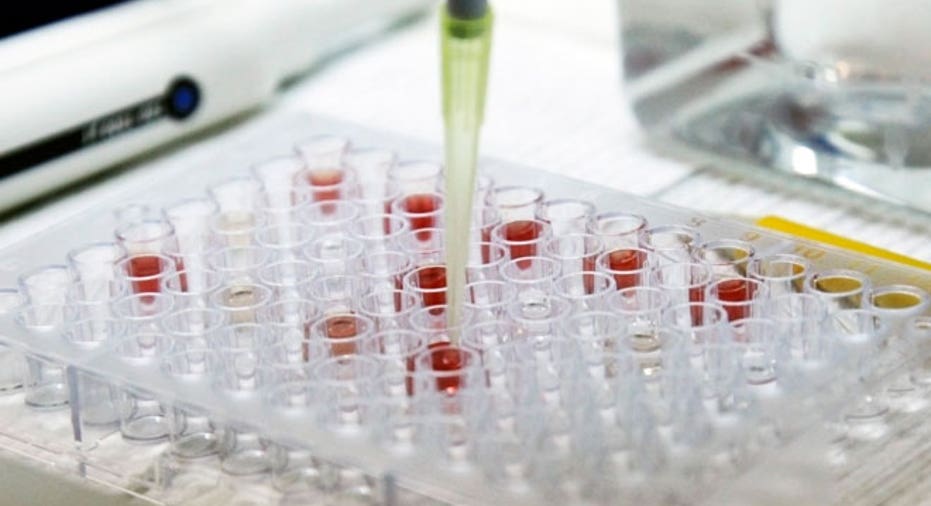Are We Any Closer to Finding a Drug to Battle Alzheimer’s?

Biogen (NYSE:BIIB) and Eli Lilly (NYSE:LLY) are inching closer towards a treatment for Alzheimer’s but the progress is not as fast as investors and doctors had hoped based on data from the Alzheimer’s Association International Conference (AAIC) in Washington this week.
Alzheimer’s is a progressive neurodegenerative disorder that causes various stages of dementia. Currently of the 5.3 million people affected, 5.1 million are age 65 or older according to the Alzheimer’s Association.
Eli Lilly’s solanezamub is designed to slow the progression of the disease with people suffering from mild Alzheimer's Disease (AD). The data announced Wednesday expanded on previous trials. “The group that started on the drug earlier did better than the group that started on placebo, confirmation of a disease-modifying effect,” Bill Thies, PhD, Senior Scientist in Residence, Medical and Scientific Relations for the Alzheimer’s Association said. He notes the good news is that “Lilly is already in ph. 3 trials (EXPEDITION3) and a successful result in next 12-18 months will give them the ability to file with the FDA.”
The results of the trials point to the fact that starting treatment of solanezumab at the outset is essential in potentially slowing the progression of the disease. Eli Lilly shares were modestly higher trading around the $85.83 level mid-day.
“These findings are an extension of trials Lilly has done before, a rehashing of trials with added arms,” Thomas Shrader, equity analyst at Stifel said. It shows “how desperate the community is to get something to market,” he noted.
To Shrader's point, more than 28 million baby boomers will develop Alzheimer’s between now and mid century, and the cost of caring for them will consume nearly 25% of Medicare spending in 2040, as reported at AAIC.
Alzheimer's Disease Mortality by County | HealthGrove!function(d,s,id){var js,fjs=d.getElementsByTagName(s)[0],p=/^https:/.test(d.location)?'https':'http';if(!d.getElementById(id)){js=d.createElement(s);js.id=id;js.src=p+"://cdn1.findthebest.com/rx/widgets.js";fjs.parentNode.insertBefore(js,fjs);}}(document,"script","ftb-widgetjs");
For Biogen, while the results were promising, data highlighted a side effect with ARIA (amyloid-related imaging abnormalities), which results in dangerous brain swelling. It was also found that there were reduced dose and time-dependent impairment in measures of cognition. Biogen shares tumbled over 10% to around $397 mid-morning.
In March of 2015, Biogen announced interim results that were marked the first time an investigational drug for AD demonstrated a statistically significant reduction on amyloid plaque and a statistically slowing of clinical impairment in patients with mild disease. Biogen has started late-stage trials and will be waiting for more favorable results over the next several years.
"The Federal government is beginning to get the message, we are starting to getting real appropriations, the National Institutes of Health has received about $1 billion,” notes Thies, “but we need about $2 billion to support underlying efforts for potential targets and medications.”
Wall Street is also optimistic. “Alzheimer’s drugs could be a $20 billion+ market if they are truly stopping the disease in its tracks or doubling the time it takes before people are truly incapacitated,” stated Shrader.
He is positive on many of these antibodies eventually becoming salable drugs, “it’s just a matter of time,” he notes.



















